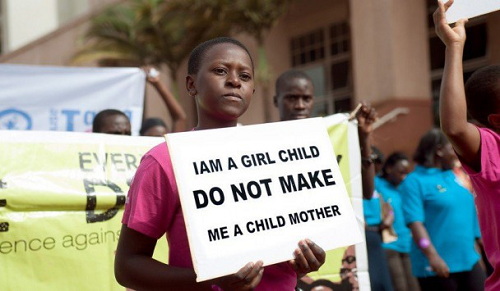- Eduwatch calls for increase in Domestic Violence fund to Gh₵2M
The Ghana Statistical Services (GSS), in the 2021 Population Census Report, has indicated that about 80,000 girls between 12 and 17 years are either married or living with a man, a factor that has been identified as an impediment to girl-child education.
Meanwhile, in 2016, the country adopted the National Strategic Framework on Ending Child Marriage (NSF-ECM) to guide the implementation of activities toward a child marriage-free society by 2030; but after six years of implementation, policies to tackle child marriage have not been effective due to lack of resource commitments, policy inconsistencies, among others.
The Africa Education Watch (Eduwatch) has, therefore, called for a review of the framework, allocation of adequate resources to the domestic violence fund, and better equipping the state agencies in charge to help address the challenges and reduce child marriage drastically by the 2030 timeline, if not completely eradicated.
Board Member of Eduwatch, Dorothy Konadu, in her address at a child marriage convening held in Accra, stated that there is a need for stakeholders in the country to recognise that child marriage is a leading socio-cultural factor that keeps girls out of school.
Currently, she said, up to 49 percent of the 1.4 million out-of-school children in Ghana are girls.
“After six years of implementation, however, child marriage remains a major issue affecting the educational attainment of girls, thus compelling the President of the republic to make an additional commitment to mobilise resources to end child marriage in Africa.
“Current data from the Ghana Statistical Services gives the indication that child marriage is still endemic. There is a need, therefore, to review the National Strategic Framework for the purpose of strengthening and improving the national response,” she said.
Domestic Violence Fund
The Executive Director of Eduwatch, Kofi Asare, has observed a reduction in the allocation to the Domestic Violence Fund from GH¢2million to GH¢1million in the recently passed government budget, a situation he described as very unfortunate.
“The lack of sufficient funds hugely affects the adequate provision of interventions toward addressing issues of gender-based violence, including child marriage. In the previous budget, GH¢2million was allocated but the fund was able to access only GH¢1million, which was woefully inadequate. In this new budget, only GH¢1million was allocated, so we wonder how much would be released to the fund.
“As Parliament begins the appropriation process, I wish to take this opportunity to appeal to the house to increase the allocation to the Domestic Violence Fund to at least the 2022 level of GH₵2 million,” he said.
The Domestic Violence Fund, established by the Domestic Violence Act, 2007 (Act 732), Section 29, indicates that the fund should be used to support victims of domestic violence, including physical abuse, rape, and child marriage, among others.
The fund is to be geared toward the basic material support of victims of domestic violence, such as training the families of victims of domestic violence; rescue, rehabilitation and reintegration of victims of domestic violence; and the construction of reception shelters for victims of domestic violence in regions and districts.










